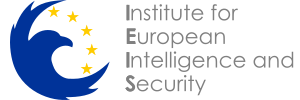The Institute collates professional covert intelligence standards within Europe based on a scientific and research-based approach. It communicates common ethical standards for intelligence professionals, amending and updating its guidance through continuous research and consultation with stakeholders. It also relies heavily on stakeholder groups such as academics, consumers, professionals, practitioners and other regulators in order to achieve its mission.
Regional standards were first derived in a research project in 2015 where the Institute evidenced the leading position of European intelligence based upon ethical and professional practice in covert disciplines. It is because of this advanced position, particularly in the field of human rights, that European standards so often take precedence where differences in standards exist and was a optimal starting point for professionalisation.
After 2015, standards continued to develop over tine in response to social, political, technological and other changes. The Institute continuously monitors and updates its guidance to ensure it adequately reflects European standards so professionals always adopt the high standards that European citizens have come to expect. The Institute also incorporates broader international quality standards where gaps exist in European standards. But professionalisation is not only a matter of adopting regional standards but being independently, objectively and expertly regulated.
Attempts to provide internal oversight have historically proved conceptually and practically flawed. So the standards of professionalisation outlined below can only be delivered by a proactive regulating body representative of the entire profession, independent of industry and government:
- Advocacy
- Responsiveness
- Legislative implementation
- Governance
- Process
- Quality
- Accountability
- Transparency
- Collaboration
- Competency
- Registry
- Ethics
- Educational standards
The Institute works in collaboration with other national and regional regulators across Europe and is uniquely trusted because of its position as an independent body. It conducts and facilitates regional research and outreach, the findings of which are shared with the standards committees and it contribute to the ongoing review of regional standards. The Institute also possesses the expertise to interpret complex research and integrate it into professional standards for a better understanding of the root cause of issues, inconsistencies and the development of universal, actionable solutions.
Issues with stakeholders are regularly discussed through collaboration and information shared about contemporary practice within the profession. The Institute provides a key role in the selection of oversight task forces and advisory groups. As a professional body standards are enforced through certification, technical investigation and sanction, particularly through intelligence support to the Inspectorate.
Monitoring & Review
The Institute continuously promotes and reviews professional standards, recognising and communicating innovation and the strengths of the profession, maintaining public confidence in intelligence and helping all stakeholders understand the value of the profession. A combination of covert and overt monitoring combined with a rigorous audit and review process assists the enforcement of standards and allows the public and the profession to draw a clear distinction between those who act in the public interest and those who do not.
The Institute has been actively and covertly monitoring professional standards in un-accredited intelligence organisations active throughout Europe since 2015. The objective of this kind of monitoring is to inform the Institute as to the current state of affairs and enhance European professional standards as a result. If gross violations of professional practice are discovered in un-accredited organisations they are always reported to the public.
Under the covert monitoring programme, when an incident is identified, reviews are carried out to identify issues relating to the application of professional standards. If the organisation is accredited an audit is conducted in respect of the identified matter and solutions are adopted by the organisation, enhancing the quality of the future operations. However, as more constructive resolutions are typically unavailable with un-accredited organisations, options for redress can be more punitive.
Audit and review is a quality assurance measure that examines the provision of services, conduct of operations, policies, practices and the compliance of individual registrants in affected units. Accredited organisations and registrants are obliged to co-operate fully with audit and review. The audit and review process focuses on an organisation or individuals risk to the public. The Institute uses its resources to assist the Inspectorate in investigating organisations and individuals engaged in intelligence operations in the public interest.
Audit and review is a core element of regulation and the Inspector-General’s findings are always reported to those subject to audit and the Institute. Although sanction can result in extreme cases, audit and review is intended as a means of encouraging and assisting organisations and individuals to improve adherence to professional standards and raise the quality of compliance. The results from audit and review provide valuable learning materials for the Institute, organisations and registrants. A constructive and helpful outcome is always sought and enables the Institute to respond to the needs of the industry while still effectively fulfilling an important regulatory role.
Recurring issues in audit and review inform future training and publications offered via a shared forum where registrants can discuss issues and develop potential solutions with the Institute. Such solutions are not universally adopted as common standards as circumstances differ from case to case and professionals must feel free to apply their professional judgment in dealing with compliance issues in the future. However, the findings from these forums undoubtedly prove useful in informing professional decision-making in the future.
Documentation
While informing research is not generally made available to candidates, best practice guidance is distributed by the Institute and the Integrated Competency Framework (ICF) by the Intelligence Academy. This information is made available to candidates during the competency assessment phase of certification at the latest and is always available to registrants upon request. Additional organisational and educational requirements are made available to accredited institutions on demand.

